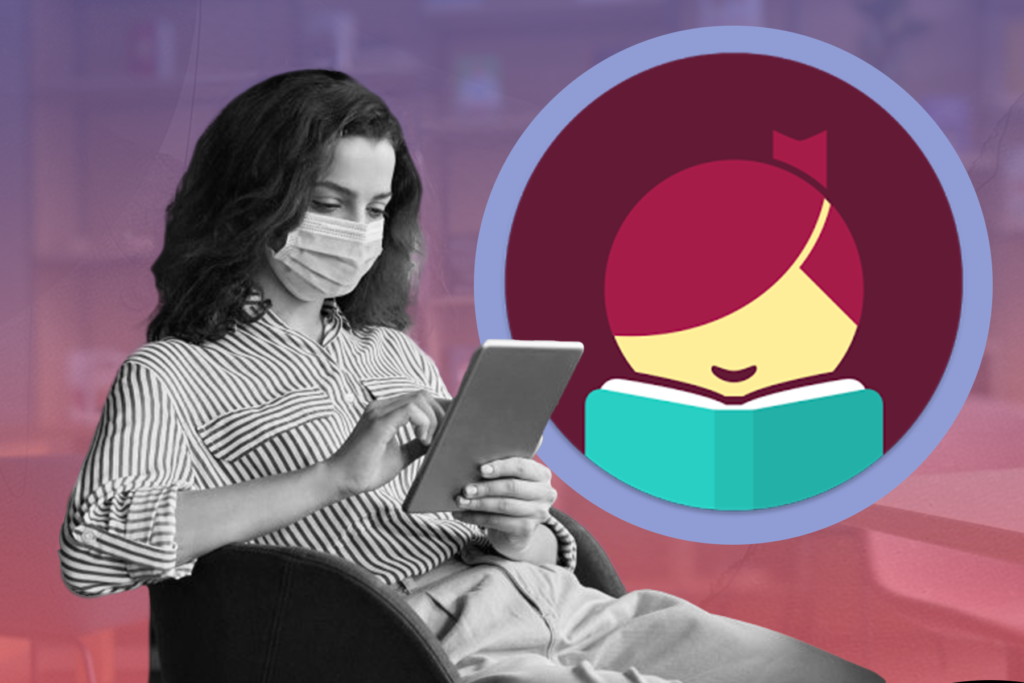Your Local Library Is Only a Tap Away with this app

Article written by Anastasia Carrow, featured writer.
For over a decade, book lovers everywhere have been wringing their hands in worry over the rise of the e-book. Amazon’s line of e-readers was predicted to kill print. The Kindle had come to topple the publishing industry. Technology-addicted young people would never know the pleasure of cracking open a freshly bound book and smelling the ink on the pages.
But print hasn’t died. E-books are popular — sales surged by about 20% during the early months of the coronavirus pandemic — and yet their popularity hasn’t been at the cost of print. In fact, e-books are helping libraries, and apps like Libby are making it easier than ever to check out digital titles and support your local library from home.
Since the 1980s, Overdrive has been the leading provider of e-books and audiobooks for libraries in America, but their 2017 launch of Libby, the “one-tap reading app from your library,” has changed the game for free, accessible, digital reading. In March, Overdrive discontinued its older, self-titled reading app, favoring Libby as the future of library-provided e-books — and librarians are fans.
“Libraries are money-pits,” said Kristen Gwin, a librarian at North Cobb Regional Library, with a sarcastic smile. “At least, that’s what the county calls us. But we’ve been receiving more funds to bulk up our e-book collection.”
Money is an issue for many libraries, and funding varies from county to county. “It’s bureaucratic,” Gwin confessed. “And slow. It’s a very slow process, getting things approved.” While the librarians at North Cobb wouldn’t claim that e-books are single-handedly reviving the institution, they did admit that Libby is an important tenet of the system.
“It makes it really easy,” said Neely Simpson—the youth services senior assistant at North Cobb—about Libby. The app allows users to simply enter their library card number, after which they have access to their local library’s entire digital catalog. Its user-friendly, minimalistic design is a step up from its clunky predecessor, which is likely one of the reasons Overdrive is finally phasing the former app out.
“There was definitely a rise in our digital circulation during the pandemic,” Simpson said, when asked about 2020’s lockdowns. “We were closed for two months, and we couldn’t run any of our normal programs. We’ve gotten back to our in-person numbers since then, but e-books are still pretty popular. Not necessarily among young people, though. They still want the physical books.”
Interestingly enough, despite the narrative that e-books are for a new generation, both Gwin and Simpson stated that the patrons checking out e-books are usually in their thirties or older. The features available on e-readers, like the ability to enlarge text and adjust the backlight, are undeniably helpful to older readers, and audiobooks — also offered in Libby — are mostly checked out by adults with long work commutes, according to Simpson. Nationwide, the majority of adults who read e-books still lies within the bracket of 18–29-year-olds, but adults aged 30–64 are no strangers to the e-book, chiming in at a combined 50% of readers.
Young people — at least, the young people in Cobb County — apparently prefer to read print. “They keep yelling at us to add more books to our young adult section,” Simpson joked.
“I love Libby,” one young user of the app said, before adding, “I can read the e-book for free first and then decide if I want to buy the book physically or not . . . If I like the book, I want to own it.”
While not every Libby user may utilize this same approach, it does seem that the novel of print is not lost on young people. They’re not opposed to reading books in one format and owning them in another, and Libby makes that effortlessly possible. Supporting your local library is, in the end, a welcomed bonus.



























